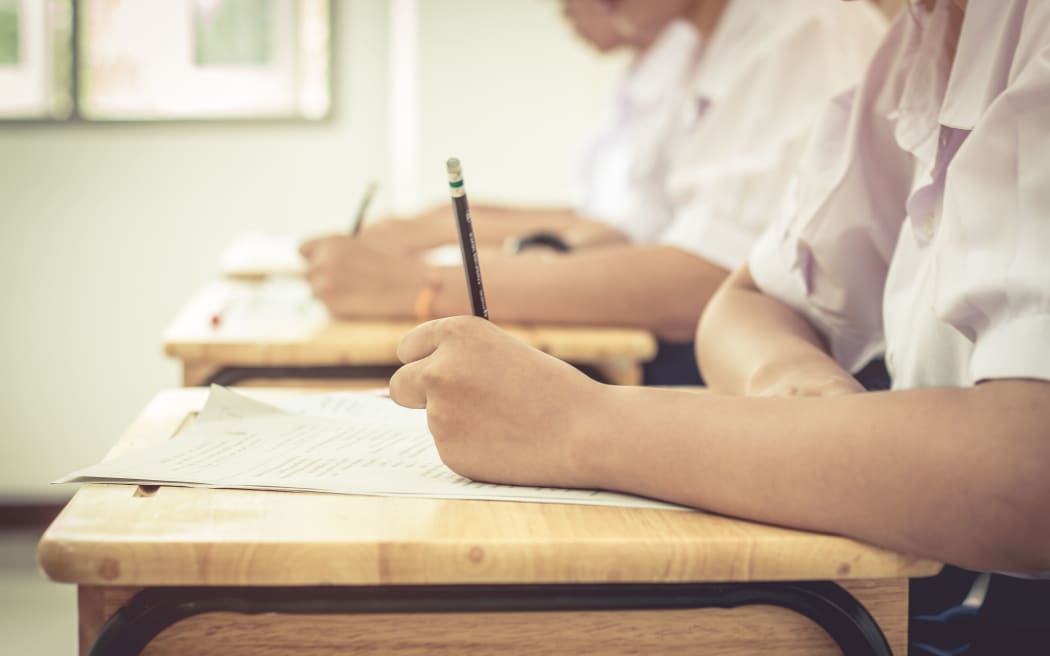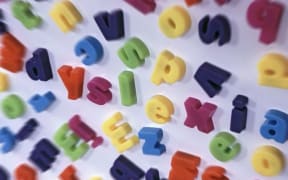
The Dyslexia Foundation says students with dyslexia will struggle with compulsory NCEA reading and writing tests even if they are given reader/writer assistants. Photo: 123RF
The Dyslexia Foundation is warning compulsory NCEA reading and writing tests will be a "train-smash" for dyslexic students.
It says the tests will unfairly prevent students with dyslexia from earning an NCEA certificate once they are introduced in 2024.
The Ministry of Education has confirmed students who struggle to read and write because of dyslexia will get reader/writer assistants to help them sit the high-stakes online literacy and numeracy tests.
But Dyslexia Foundation chair Guy Pope-Mayell said the provision of assistants would not be enough to stop the tests being a disaster for teenagers with dyslexia.
"This idea, as much as it's well-intentioned, is not going to achieve anything other than a train-smash as far as students who are dyslexic [sic]. We are going to be increasing their anxiety, we're going to be focusing on their weaknesses rather than their strengths, and we're going to basically say that unless you can deal with your inherent difficulty you're not going to have a qualification," he said.
"That's going to lead to low self-esteem, anxiety, and set the young person up for a path which is nowhere near their potential and could in fact be a lot worse."
Pope-Mayell said teachers needed to improve children's literacy in a dyslexia-friendly manner while they were at primary school so they could cope with the NCEA tests by the time they reached secondary school.
He said it was likely dyslexic students would repeatedly fail the incoming literacy and numeracy tests and that experience would undermine their ability to do well in areas of schooling where they were strong, such as design, technology or physics.
Pope-Mayell said it was appropriate to give dyslexic students reader/writers for reading and writing tests.
Ministry of Education Te Poutāhū (curriculum) group manager Rob Mill said special assessment conditions such as providing readers and writers were offered to students with additional needs.
"Readers and writers/typists help give all ākonga (students) equitable assessment opportunities without experiencing disadvantage," he said.
"The devices enable ākonga to fairly demonstrate their knowledge, skills and understanding when being assessed and overcome difficulties during both internal assessments and external exams, and for practice assessments."
Mill said readers were the 'eyes' of a student and were not allowed to prompt or interpret any component of an assessment and writers were the 'hands' and did not interpret or make suggestions.
"To the extent that spelling and/or grammar is assessed in the literacy standards, there are specific multi-choice questions that cover this. A reader or writer/typist is not allowed to encourage or prompt ākonga in any way. To do so will invalidate their results," he said.
Some principals and teachers are worried about the tests and a mid-year pilot involving mostly Year 10 students resulted in pass rates of 34 percent in writing, 56 percent in maths, and 64 percent in reading.






